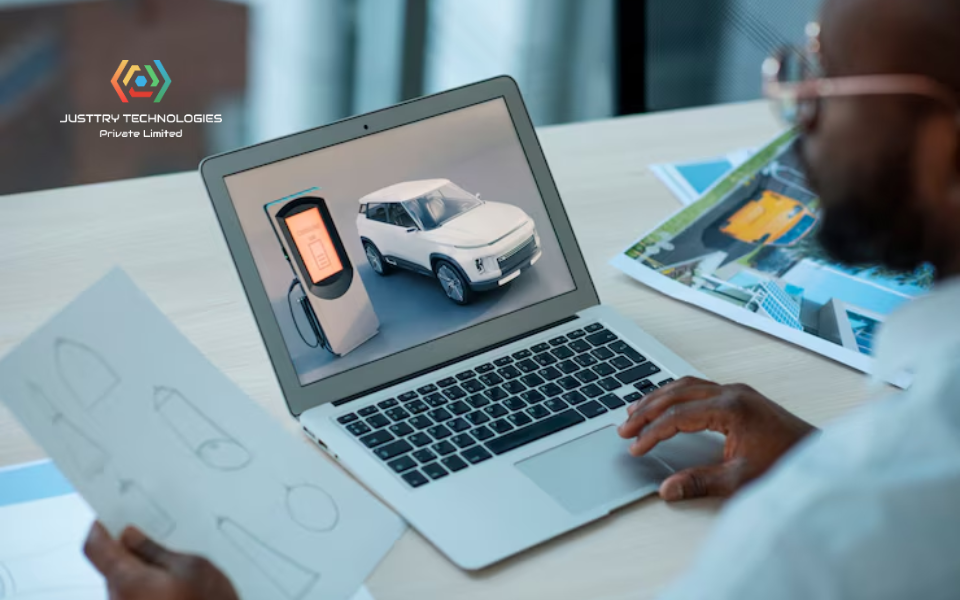How Digital Transformation Is Reshaping the Automotive Industry

Digital transformation is no longer just a trend—it’s a revolution that’s changing how the automotive industry designs, builds, sells, and delivers vehicles and parts. From smart factories to seamless online shopping, technology is driving real change in every corner of the industry.
As a platform operating in the e-commerce automotive industry, we see firsthand how this transformation is improving customer experience, increasing efficiency, and opening up new business opportunities. In this post, we’ll explore the key areas where digital transformation is making the biggest impact.
Revolutionizing Manufacturing and Production Processes
Modern automotive manufacturing is being reshaped by automation, AI, and data-driven processes.
- Smart factories are now using robotics, sensors, and machine learning to enhance precision and speed.
- Predictive maintenance powered by data analytics helps reduce downtime and keep operations running smoothly.
- 3D printing and digital prototyping are streamlining design cycles and allowing for faster time-to-market.
This shift is helping automakers respond faster to market demands and customize products more efficiently. By digitizing production lines, companies can cut costs and reduce waste while boosting quality.
Enhancing Sales and Customer Experience through Digital Platforms
Car buyers and parts customers no longer want to visit physical showrooms or stores for every purchase—they expect fast, convenient, and personalized online experiences.
- Automotive ecommerce platforms are making it easier than ever to browse, compare, and buy vehicle parts and accessories online.
- AI-powered recommendation engines help guide customers to the right products based on their vehicle type, driving habits, or previous purchases.
- Virtual showrooms and 360-degree product views are replacing in-person visits with immersive digital experiences.
The growth of online vehicle parts sales is a perfect example of how ecommerce is transforming the industry. More businesses are tapping into this shift by offering better digital interfaces and support to meet rising consumer expectations.
Optimizing Supply Chain and Operational Efficiency
Digital transformation is also driving massive improvements in automotive logistics and supply chain management.
- Real-time tracking systems give complete visibility into inventory, shipping, and order fulfillment.
- Integrated platforms connect manufacturers, wholesalers, and retailers, streamlining the flow of parts and vehicles.
- Advanced forecasting tools help companies anticipate demand and avoid overstocking or delays.
Whether you're managing vehicle parts wholesale or coordinating shipments for a dealership, digital tools are making operations faster, smarter, and more responsive to change.
Advancements in Vehicle Technology and Connectivity
Beyond ecommerce and logistics, digital transformation is embedded in the vehicles themselves.
- Connected cars use sensors and cloud data to offer everything from real-time navigation to predictive diagnostics.
- Over-the-air (OTA) software updates allow automakers to fix issues or add features without requiring a service visit.
- Electric and autonomous vehicles are being built with smart ecosystems in mind, integrating vehicle data with user preferences and behaviors.
These innovations not only improve driver experience but also open up new business models, such as subscription services and usage-based insurance.
Workforce Enablement and Managing Transformation Challenges
Of course, all this change also impacts the people behind the scenes.
- Digital tools are enabling employees to work more efficiently—from sales teams using CRM platforms to technicians relying on AR for repairs.
- Training and reskilling programs are essential to prepare the workforce for new technologies and workflows.
- Change management strategies are helping companies adopt digital systems without disrupting existing operations.
While transformation can be challenging, it also offers great opportunities for growth, innovation, and employee development.
Conclusion
The digital transformation of the automotive industry is not just about technology—it’s about unlocking new ways to create, sell, and service vehicles. From automotive ecommerce growth to smarter manufacturing and logistics, companies that embrace digital change are positioning themselves for long-term success.
At our platform, we’re proud to be part of this evolution. Whether you're a parts supplier, wholesaler, or retailer, we help you tap into the power of ecommerce and digital tools to stay competitive in a fast-changing market.
Ready to transform your automotive business? Let’s build the future together—online, efficient, and customer-first.
- Questions and Answers
- Opinion
- Motivational and Inspiring Story
- Technology
- Live and Let live
- Focus
- Geopolitics
- Military-Arms/Equipment
- Segurança
- Economy
- Beasts of Nations
- Machine Tools-The “Mother Industry”
- Art
- Causes
- Crafts
- Dance
- Drinks
- Film/Movie
- Fitness
- Food
- Jogos
- Gardening
- Health
- Início
- Literature
- Music
- Networking
- Outro
- Party
- Religion
- Shopping
- Sports
- Theater
- Health and Wellness
- News
- Culture

